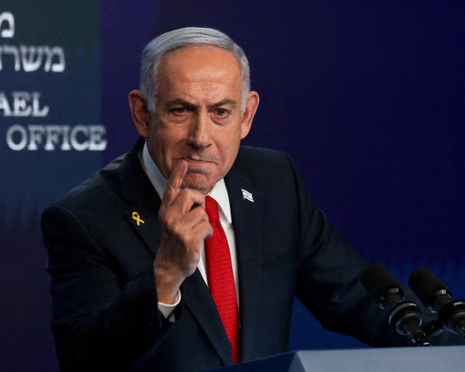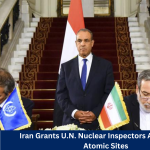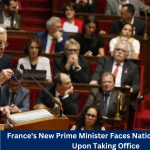In a dramatic escalation of diplomatic tensions, Israeli Prime Minister Benjamin Netanyahu has publicly accused the Australian Prime Minister of betraying Israel. The remarks have sparked heated debate in international political circles, with analysts warning of possible long-term consequences for Australia-Israel relations and the broader Middle East peace process.
The accusation marks a significant turning point in Israel’s relationship with one of its traditionally supportive Western allies. With the conflict in Gaza, rising criticism of Israeli military operations, and growing divisions in global diplomacy, Netanyahu’s comments highlight the fragile nature of international alliances when moral and political priorities collide.
The Roots of Netanyahu’s Accusation
The immediate trigger for Netanyahu’s accusation appears to stem from recent statements and policy positions taken by the Australian Prime Minister regarding Israel’s military actions in Gaza. According to reports, Australia joined a coalition of nations calling for an immediate ceasefire and stricter adherence to international humanitarian law.
While framed as a humanitarian stance, Netanyahu interpreted the move as a betrayal, especially since Australia has historically aligned with Israel in major United Nations votes. By breaking ranks, Canberra signaled a willingness to adopt a more independent foreign policy stance, even at the cost of upsetting long-standing allies.
Netanyahu, known for his combative style on the international stage, wasted no time in framing Australia’s decision as a direct betrayal of Israel’s right to defend itself.
Australia’s Policy Shift
Australia has long balanced its foreign policy between strong support for Israel and recognition of Palestinian rights. However, in recent years, shifts in public opinion and increasing pressure from human rights groups have pushed Australian governments toward a more critical stance on Israeli policies.
The current Prime Minister has taken steps that highlight this changing direction:
Supporting international investigations into possible human rights violations in Gaza.
Calling for restraint in Israeli military operations that have caused high civilian casualties.
Reaffirming Australia’s support for a two-state solution, something Netanyahu’s government has consistently sidelined.
This nuanced shift may appear subtle on the global stage, but for Netanyahu, it symbolized an erosion of Israel’s diplomatic safety net.
Netanyahu’s Reaction: Strong Words, Stronger Implications
During a press conference in Jerusalem, Netanyahu declared:
“When allies abandon Israel in its most critical moments, they do not merely weaken us—they betray the values of partnership and democracy we thought we shared.”
The language was stark, designed to resonate with both domestic and international audiences. For Israelis, it reinforces Netanyahu’s image as a leader who will defend the nation against what he perceives as growing global hostility. For international partners, it was a warning shot—suggesting that any wavering from full support of Israel’s military strategy would be met with fierce rebuke.
Reactions from Australia
The Australian Prime Minister responded cautiously, declining to escalate the rhetoric further. In a carefully worded statement, he emphasized:
“Australia remains a friend of Israel, but friendship also demands honesty. Our stance is not betrayal; it is a commitment to peace, justice, and the protection of human life.”
This response reflects Canberra’s effort to walk a delicate line: showing independence in foreign policy while avoiding the full collapse of ties with Israel.
International Diplomatic Fallout
Netanyahu’s accusation has ripple effects far beyond Israel and Australia. Other nations are watching closely, with reactions divided along predictable lines.
United States: While still Israel’s staunchest ally, Washington has also increased calls for a ceasefire in Gaza. Australia’s position could embolden similar voices within the Biden administration.
European Union: EU nations, particularly France and Ireland, have already been critical of Israel’s military strategy. Netanyahu’s harsh reaction may further isolate him in Europe.
Arab Nations: Leaders across the Middle East seized on the exchange to argue that Israel is increasingly losing global legitimacy.
The Broader Context: Gaza, International Law, and Public Opinion
Netanyahu’s anger cannot be separated from the ongoing Gaza conflict, where more than 30,000 Palestinian deaths have been reported by local health authorities since the escalation began. Israel maintains that Hamas is to blame for the violence, citing the militant group’s rocket attacks and use of civilians as shields.
However, global outrage over civilian casualties and destroyed infrastructure has intensified. Public opinion in many Western democracies, including Australia, has shifted significantly. Polls indicate growing support for Palestinian rights and increasing discomfort with what is viewed as disproportionate Israeli military action.
Thus, when Australia voiced concerns, it reflected not only official policy but also the mood of its citizens.
Expert Analysis: A Relationship at the Crossroads
Political analysts see Netanyahu’s comments as both a warning and a test.
Dr. Sarah Bennett, a Middle East policy expert at the University of Sydney, explained:
“This is less about Australia itself and more about sending a message to other Western allies: if you challenge Israel publicly, expect to be branded as betrayers. Netanyahu is playing to his domestic base but also trying to deter further cracks in Israel’s international support system.”
Similarly, Professor Eli Nadav of Tel Aviv University noted:
“Australia’s stance is not radical. It mirrors global concern over the humanitarian crisis. But for Netanyahu, any shift away from unconditional support feels existential.”
Implications for the Australia-Israel Alliance
The accusation of betrayal could have long-term consequences:
Diplomatic Strain: Trust between Canberra and Jerusalem may weaken, reducing coordination on security and intelligence matters.
Public Backlash: Australian citizens could pressure their government to further distance itself from Israel, especially if Netanyahu continues with inflammatory rhetoric.
Strategic Realignment: Israel may prioritize strengthening ties with other allies in Asia, such as India and Japan, while Australia may deepen cooperation with European partners critical of Israel.
Netanyahu’s Political Strategy at Home
Domestically, Netanyahu’s framing of Australia as a “betrayer” plays well with his political base. Many Israelis feel the world unfairly judges their country, and Netanyahu has often used this sentiment to rally support.
By accusing a respected Western democracy of betrayal, Netanyahu reinforces his narrative that Israel stands alone, surrounded by enemies, and must rely solely on its strength.
The Global Stage: What Comes Next?
The standoff raises crucial questions about the future:
Will Australia harden its stance further, possibly recognizing Palestinian statehood?
Could Netanyahu’s rhetoric push more allies into Australia’s camp of cautious criticism?
Will Israel’s increasing diplomatic isolation weaken its leverage in future peace negotiations?
The answers will depend on how both leaders navigate the next few weeks.
FAQs
Why did Netanyahu accuse the Australian Prime Minister of betraying Israel?
Netanyahu made the accusation after Australia joined calls for a Gaza ceasefire and stricter adherence to international law, which he viewed as undermining Israel’s security.
How has Australia responded to Netanyahu’s remarks?
The Australian Prime Minister emphasized that Australia remains a friend of Israel but must remain honest and prioritize peace and humanitarian concerns.
What impact could this have on Israel-Australia relations?
It could lead to weakened diplomatic trust, reduced cooperation, and potential realignment of alliances.
How have other countries reacted?
The U.S. remains cautious but supportive of Israel, while EU nations have largely sided with Australia’s humanitarian concerns. Arab nations have highlighted Israel’s growing isolation.
Is this part of a larger trend in global politics?
Yes. Public opinion and diplomatic pressure on Israel are increasing globally, leading to friction even with long-standing allies.
Conclusion
The accusation that Netanyahu accuses Australian Prime Minister of betraying Israel is more than just political theater—it is a symptom of deeper fractures in global alliances, public opinion shifts, and the moral dilemmas posed by the Gaza war.
As Netanyahu doubles down on defending Israel’s actions, and as countries like Australia push for accountability and humanitarian considerations, the gap between Israel and its traditional allies may continue to widen.
For Israel, the challenge lies in balancing security with diplomacy. For Australia, it lies in maintaining principled independence while preserving critical alliances.
Either way, this episode marks a turning point in Israel-Australia relations and serves as a stark reminder of how global conflicts test even the closest of partnerships.


















